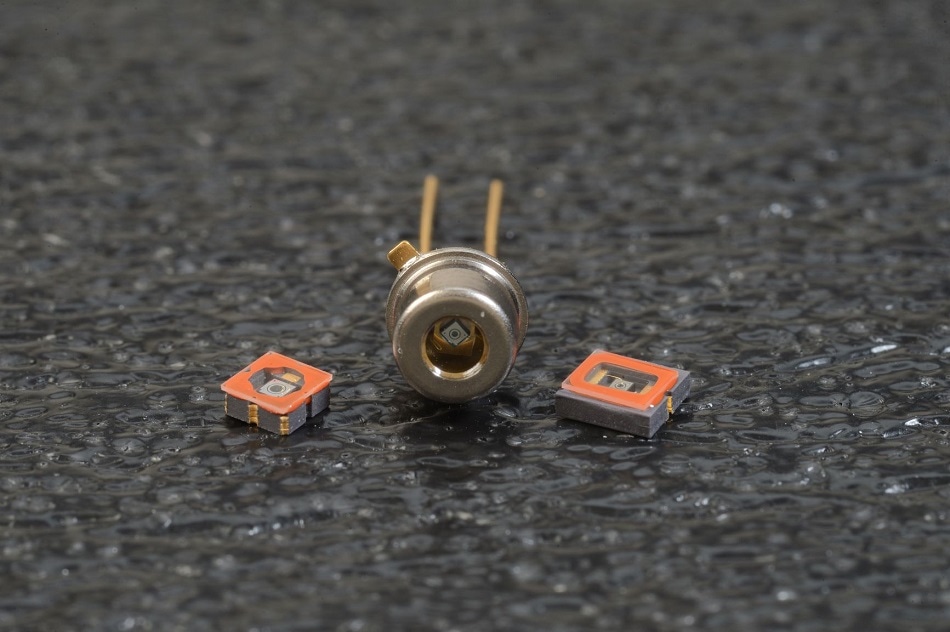Marktech Optoelectronics (www.marktechopto.com)(Marktech), a privately-held, veteran-owned, leading designer and manufacturer of standard and custom optoelectronics components and assemblies, including UV visible, near-infrared (NIR), and short wavelength infrared (SWIR) emitters, detectors, InP epiwafers and other materials, today announced the availability of its standard and custom Silicon avalanche photodiodes (Si APD’s), in quantities from prototype to OEM volumes.

Marktech Si APD’s offer low-level light and short pulse detections of wavelengths between 400 nm and 1100 nm. They are offered with choice of either a 230 µm or 500 µm active diameter; optical sensitivity optimizations for 800 nm or 905 nm peak response; an internal gain mechanism; high gain at low bias voltage; extremely fast rise times, as low as 300 ps; frequency response to 1 GHz; and a low breakdown voltage of 80V to 200V. Units are also RoHS compliant.
Standard Si APDs are offered with multiple customization options, including operational voltage selection and Vbr binning, wavelength specific band-pass filtering, and hybridization. Package options include hermetically sealed TO metal cans, plastic, and cost-effective SMD (LCC) types, with additional customization by request. Standard Si APD’s in small-to-medium sized volumes are typically available with 24-hour shipment via Marktech’s longtime distribution partner, Digi-Key Corporation. In addition, custom Si APD units from Marktech are typically available in as few as 6-8 weeks from prototype approvals. Please consult the factory for details.
As precision measurement devices, Marktech Si APD’s offer low dark current and significantly higher sensitivities, including higher NIR spectral sensitivity, than can be achieved with a standard photodiode. This allows the Si APD’s to serve as the semiconductor near-equivalent to photomultipliers within a myriad of applications. It also allows the Si APD’s to accurately detect weaker light intensities, in applications where higher bandwidth or internal gain may be required, in order to overcome higher preamplifier noise levels. Typical applications for Marktech Si APD’s include laser counting, x-ray spectroscopy, optical data communications, Light Detection and Ranging (LIDAR) instrumentation, optical rangefinders, spatial light transmitters, scintillation detectors, fast receiver modules, particle detectors, industrial surveying equipment, automated toll collectors, astronomy observation devices, and vehicle self-braking and self-parking systems.